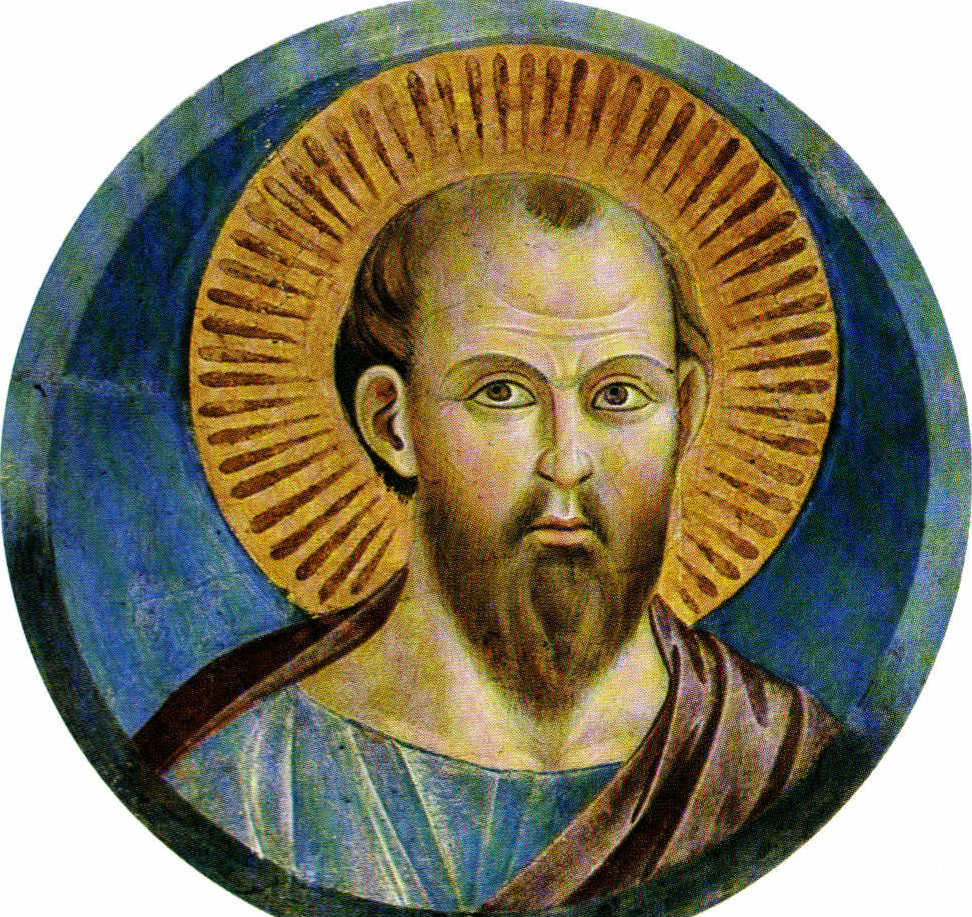The following homily was preached on July 9, 2023, being the Sixth Sunday after Pentecost–Proper 9A, at the 9:00am Rite II Eucharist at St. Mark’s Episcopal Church (Lappans Road), Boonsboro, Maryland.
Collect of the Day: “O God, you have taught us to keep all your commandments by loving you and our neighbor: Grant us the grace of your Holy Spirit, that we may be devoted to you with our whole heart, and united to one another with pure affection; through Jesus Christ our Lord, who lives and reigns with you and the Holy Spirit, one God, for ever and ever. Amen.”
Readings: Zech. 9:9-12; Ps. 145:8-15; Rom. 7:15-25a; Matt. 11:16-19, 25-30
“Wretched man that I am! Who will deliver me from this body of death?”—Romans 7:24
“Come to me, all who labor and are heavy laden, and I will give you rest.”—Matthew 11:28
In the Name of God the Father, God the Son, and God the Holy Ghost. Amen.
A little over a week ago, the United States Supreme Court released a landmark decision in Students for Fair Admissions, Inc. v. President and Fellows of Harvard College.[1] The case focused on affirmative action, special consideration granted to historically excluded racial groups by government mandate to public institutions or voluntarily by private ones. The main question was whether academic institutions could or could not use race as a factor in their admissions process. The plaintiffs, a group of Asian American students rejected from Harvard, maintained that the school’s admissions program violated the Equal Protection Clause of the Fourteenth Amendment, which says how no state “shall deny to any person…the equal protection of the laws.” They claimed that Harvard curated the racial breakdown of its incoming classes, which caused a reduction in the number of Asian American applicants annually admitted.
Six of the Court’s justices sided with the plaintiffs, validly arguing how
[Students] must be treated based on his or her experiences as an individual—not on the basis of their race.
Many universities have far too long done just the opposite. And in doing so…have concluded, wrongly, that the touchstone of an individual’s identity is not challenges bested, skills built, or lessons learned but the color of their skin. Our [Constitution] does not tolerate that choice.[2]
The dissenting justices offered an equally valid counter argument, explaining how what the law says has not always been practiced. One justice particularly wrote that by
Turning back the clock…the Court indulges those who either do not know our Nation’s history or long to repeat it. Simply put, the race-blind admissions stance the Court mandates from this day forward is unmoored from critical real-life circumstances. Thus, the Court’s meddling not only arrest the…generational project that American universities are attempting, [but] it also launches, in effect, a dismally misinformed sociological experiment.
Time will reveal the results.[3]
Both opinions illustrate well the point Paul makes in Romans. Similar to the Supreme Court’s majority opinion, regarding God’s law, Paul assesses it to be good. He says three verses before today’s Epistle that
The law is holy, and the commandment is holy and just and good. (Romans 7:12).
The law’s overall purpose is to help us be better at being human. God’s laws against murder, adultery, stealing, bearing false witness, and covetousness all invite us into His goodness. We all constitute part of God’s created order, Himself having declared to be very good (cf. Genesis 1:31). Thus, to commit such acts against one another, God’s created beings, is to not only cause them grief but also God. That is why we need the law, to guide us in the doing of right actions. We best flourish when there is some sort of proper and good authority functioning among us.[4]
But likewise to how the Supreme Court’s dissenting justices’ pointed out, though God’s law dictates how we should act, we find ourselves not being able to keep it. The law teaches us what is right and wrong and I, for one, have an earnest desire to do what the law says. So, what makes us not do what we should do and do the things we hate doing? Sin, Paul says. Sin is like a disease within us that inclines us to rebel against God’s commandments. And like a disease, sin infects our hearts and minds into thinking that our wills are superior to that of God’s will. Hence, we are driven to revolt. Instead of keeping us from doing wrong, the law’s pointing out sin makes us want to do it even more. Sin is what causes us to feel torn between doing what is right and wrong. As they say, “The struggle is real.”
Paul, though, despite his struggles, emphasizes his delight in God’s law. The law itself is not bad, yet it is not able to help us. Our real problem comes from us, for the existing time, having to concurrently live in two worlds, thus living in an unspecified time of tension. During this past Wednesday’s Bible study, one of our members stated how she laments that she feels unable to live out her faith in the way that she would like to, many in our country going in an opposite direction. Such as it is in this present time as people of faith trying to live a life that’s focused on an eternal and spiritually good world within this one that is temporal and material. And as another Bible study attendee said in loving response to our concerned sister, one of the great blessings of our country is that its separation of church and state allows for its people to live lives of faith in the way that they feel is the best for them. Thus, we should keep trying to be God’s faithful people in this world. We should not give up hope.
In that we find the solution to the inabilities we have and tensions we encounter. The solution is not a what, but a who. God provides the solution in the Person of Jesus Christ. Next week, we’ll hear Paul describe how
God has done with the law, weakened by the flesh, could not do: sending His own Son in the likeness of sinful flesh and for sin, He condemned sin in the flesh…that the just requirement of the law might be fulfilled in us, who walk not according to the flesh but according to the Spirit. (Romans 8:3-4)
It is this very Jesus who graciously invites us to take upon ourselves His yoke, it being easier and lighter than the law’s heavier and demanding burdens. Accepting Jesus makes Him the proper and good authority functioning among us. This happens because Jesus is in Himself the law. He is its definition and purpose: to protect and promote the common good, set fairness, and keep order.[5] By learning from His life, Jesus becomes our guidebook. Through Christ, the law’s complexities and detailed demands no longer weigh us down. By seeing Jesus doing what the law says, all who choose to follow Him become persuaded to follow His commandments. They become over time our delight. Only through Jesus can we strive to keep God’s command to love and do good towards others with pure affection. Following Christ is what gives us the courage to bear witness to the truth, that our words and deeds match with God’s command to love our neighbor as we love Him and ourselves.
Though we face suffering in this world, to flee to Jesus provides us rest and comfort for our sin-sick souls. The struggle is real, yet God, made known in Jesus Christ, is merciful.
There is therefore now no condemnation for those who are in Christ Jesus. For the law of the Spirit of life in Christ Jesus has set me free from the law of sin and death. (Romans 8:1-2).
The time is surely coming, and now is, when the hardships and negative influences of this world will no longer hold sway over us. By choosing Jesus now, though the tensions will still be there in this world, they will be easier to bear because He has defeated their dominion. Thanks be to God that victory and salvation has come to us from Jesus. The Psalmist says
The LORD upholds all who are falling, and raises up all who are bowed down. (Psalm 145:14).
Trust in the Lord Jesus. From His Word comes forth everlasting life.
In the Name of God the Father, God the Son, and God the Holy Ghost. Amen.
[1] A similar case, Students for Fair Admissions, Inc. v. University of North Carolina, et. al., was consolidated by the Supreme Court under the Harvard case in January 2022.
[2] Opinion of the Court, Students for Fair Admissions, Inc. v. President and Fellows of Harvard College (600 U.S. ____ (2023), p. 40.
[3] Dissent of Associate Justice Ketanji Brown Jackson, Students for Fair Admissions, Inc. v. University of North Carolina, et. al. (600 U.S. ____ (2023), pp. 27-28.
[4] I commend Victor Lee Austin’s Up With Authority: Why We Need Authority to Flourish as Human Beings (T&T Clark, 2010) for reading on why this point is true.
[5] “Morality in Law and Action,” Our Moral Life in Christ (Midwest Theological Forum, 2013), p. 67.


Leave a comment